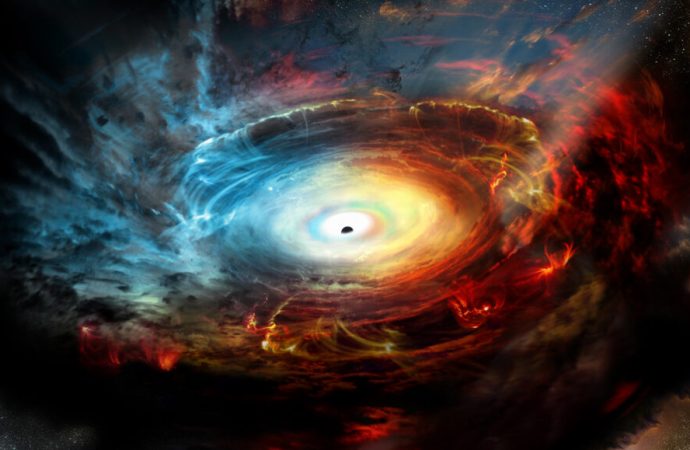Mathematical calculations and observations of Milky Way stars illuminated the hidden objects
Source: Science News
Research that unveiled the most mysterious objects in the cosmos has garnered science’s highest honor.
Three scientists who cemented the reality of black holes have been jointly awarded the Nobel Prize in physics. Roger Penrose of the University of Oxford, Reinhard Genzel of the Max Planck Institute for Extraterrestrial Physics in Garching, Germany and Andrea Ghez of UCLA will split the prize, the Royal Swedish Academy of Sciences announced October 6.
Black holes are massive objects with a gravitational field so strong that nothing can escape once it falls within, not even light. At their centers, black holes harbor a puzzling zone called a singularity, where the laws of physics cease to make sense.
Black holes “really represent the breakdown of our physical understanding of the laws of physics. That’s part of the intrigue,” Ghez said via a phone call during the announcement. Studying the exotic objects “pushes forward on our understanding of the physical world.”
Penrose will receive half of the 10 million Swedish kronor prize (more than $1.1 million), for his mathematical calculations showing that black holes are physically possible. When the strange objects were first proposed, as a consequence of Albert Einstein’s general theory of relativity, scientists were skeptical that black holes could actually exist.
The other half of the prize will be split between Genzel, also of the University of California, Berkeley, and Ghez for their work revealing that one of these dark objects lurks at the center of our own galaxy, the Milky Way.

“This year’s prize celebrates … the discovery of one of the most exotic objects in our universe,” said David Haviland, chair of the Nobel Committee for Physics, during the announcement. “For many years, physicists questioned the very idea of a black hole, treating it as a peculiarity in our theory of gravity.”
Penrose invented mathematical strategies to tackle the complexities of black holes. His work revealed that black holes, instead of just being mathematical artifacts of Einstein’s theory, could form in conditions likely to exist in the universe. In 1965, he published a landmark paper in Physical Review Letters that described how matter could collapse to form a black hole with a singularity at its center.
Some of Penrose’s insights came while walking in the woods, he recalled in a news conference October 6. “I would think about these questions as I was walking … thinking about what it would be like to be in this situation with all this material collapsing around you and what would happen.”
Beginning in the 1990s, Ghez and Genzel each led teams that used telescopes to peer at the center of the Milky Way, measuring the orbits of stars that zip around the galaxy’s heart. Those stars move so fast, both teams found, that only an incredibly compact, massive object such as a giant black hole could explain their trajectories. That work, which has continued in the decades since, helped solidify the existence of black holes, and helped confirm the predictions of general relativity.
The Milky Way’s central black hole, named Sagittarius A*, is a behemoth at 4 million times the mass of the sun. Scientists now think that such a supermassive black hole sits at the center of most large galaxies.
Ghez is only the fourth woman to win the Nobel Prize in physics, after Marie Curie in 1903, Maria Goeppert Mayer in 1963 and Donna Strickland in 2018.
Source: Science News

































Leave a Comment
You must be logged in to post a comment.